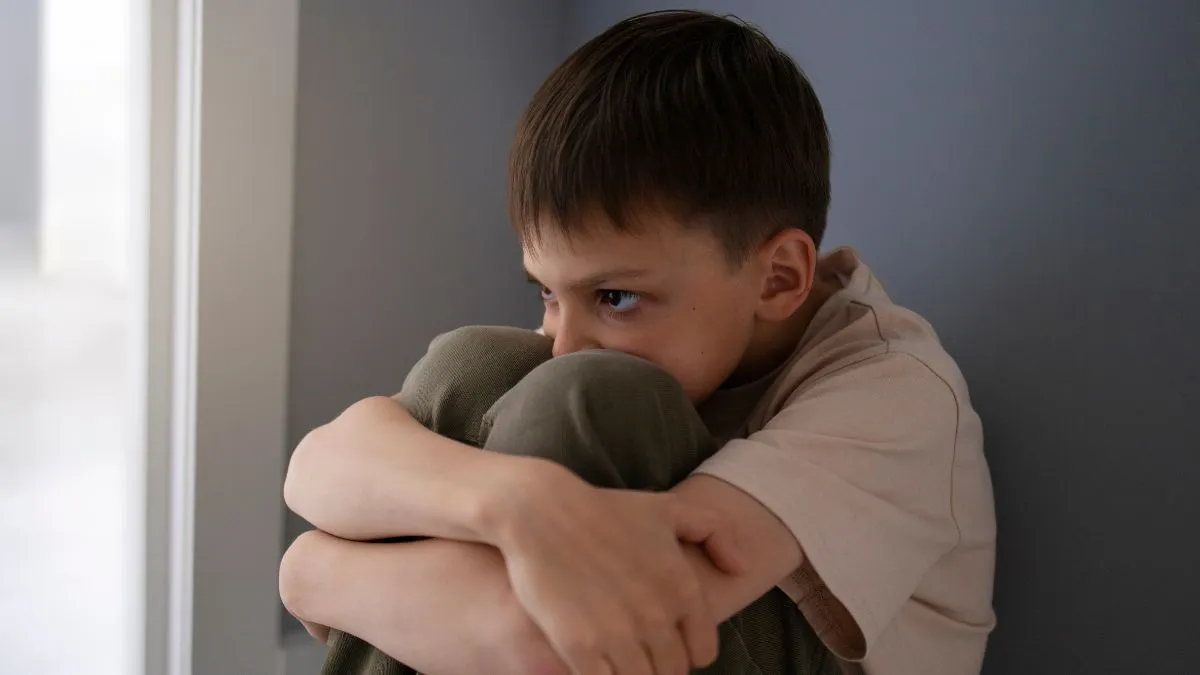
The first few years of a child’s life aren’t just about growing up; they’re about wiring the brain for a lifetime. During this, a child’s brain undergoes rapid changes that shape physical, cognitive, and emotional development. According to psychologists and the insights of Sigmund Freud, experiences during these foundational years impact not just learning abilities, but emotional responses, coping mechanisms, and all over personality. Parents often underestimate the importance of these early years, but it is important to know that both positive and negative experiences during childhood have long-lasting impressions that can shape a child’s mental health throughout life.
Factors Leading to Poor Mental Health
Early childhood trauma can have long-lasting effects on a child’s mental and emotional health. Rita Aggarwal, Mental Health Expert and Chair-Rotary Action Group on Mental Health Initiatives (2025-27) shares key factors thatinclude:
- Parental Relationships: Continuous fights among the parents create a stressful environment for the child that impacts their emotional development. The atmosphere between husband and wife must be cordial and supportive for healthy growth.
- Physical Abuse: Direct violence toward the child or anyone around them, such as beatings or harsh punishments towards the child or extreme actions by parents, like using hot irons with the intention of hurting them or anyone else, leaves deep psychological scars, causing anxiety and panic responses later in life.
- Emotional Neglect or Suppression: Children during their early age are not able to speak or write and only express by crying. Hence, they often suppress emotions like fear, sadness or anger. Over time, this suppression affects their ability to manage feelings and deal with situations.
- Environmental Stressors: More situations like illness in the family, parental mental illness, alcoholism, poverty, hunger or malnutrition add to the stress that can cause mental health problems in children.
- Other Traumas: Severe events such as natural calamities, wars, refugee experiences or sexual abuse, also known as big T’s or traumas, influence emotional stability and coping mechanisms.
Also Read: Childhood Maltreatment Linked To Higher Risk Of Autoimmune Diseases, Study Reveals
How Can Childhood Trauma Be Reversed?
“Healing from childhood trauma is possible, but it is a slow process. While the memories of past traumas never go away, emotional reactions can be controlled and managed,” shares Rita Aggarwal.
- Counselling helps individuals to link current emotional reactions to past experiences and find the root cause of anxiety, panic attacks, and other mental problems.
- Practices such as deep breathing, meditation, mindfulness, drinking water or simply pausing to ground oneself help to manage the emotional responses.
- Therapy helps to create new responses to triggers that help a person to change the automatic reactions and form new ones over time.
- It is also important to encourage children to express emotions verbally and safely, and support them to understand their feelings and provide them with a nurturing and safe environment, which helps to prevent long-term suppression of emotions and build resilience.
Also Read: Why Can’t Some People Sleep Without A Blanket – Is It Linked to Trauma?
"For newborns, healing and healthy development is very important which begins with the mother’s emotional well-being as a calm, supporting, and emotionally stable mother helps to regulate the baby’s mood and stress responses. When mothers receive adequate rest, empathy and mental health support, their babies feel more secure and connected. Simple practices like skin-to-skin contact, gentle communication and creating a peaceful environment can help strengthen the emotional bond," shares Mental Health Expert Rita Aggarwal.
Final Word
Understanding childhood trauma is very important for parents and other family members as early experiences, whether big or small, shape a child’s personality and their overall emotional well-being. By fostering a supportive and nurturing environment, recognizing the potential traumas and offering the right emotional guidance, parents can help their children grow into mentally healthy adults. At last, parents should always know that shaping a child’s start is actually shaping their whole story.
Also watch this video
FAQ
What is childhood trauma?
Childhood trauma is a state caused due to serious childhood experiences that caused extreme fear, distress aur trauma.What factors can affect mental health of kids?
Poor parental relationship, physical abuse, neglect or suppression and stressful environment are some factors that can affect the mental health of a child.How to overcome childhood trauma?
Taking therapy and counselling are the two best ways to help a child overcome childhood trauma. This could take months or sometimes, years to cope with it.
Read Next
Childhood Cancer Awareness Month: Boys Or Girls, Who Is More Vulnerable To Childhood Cancers?
How we keep this article up to date:
We work with experts and keep a close eye on the latest in health and wellness. Whenever there is a new research or helpful information, we update our articles with accurate and useful advice.
Current Version
Oct 10, 2025 19:45 IST
Modified By : Chanchal SengarOct 10, 2025 19:45 IST
Published By : Chanchal Sengar